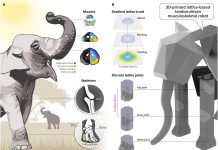
Skin cancer is becoming increasingly prevalent, making early detection crucial for effective treatment.
Researchers in India have explored the potential of machine learning, commonly known as artificial intelligence (AI), to improve the accuracy of skin cancer diagnosis.
Their study, published in the International Journal of Nanotechnology, holds promise for early intervention and better outcomes for patients.
Rising Incidence of Skin Cancer
The incidence of skin cancer is on the rise, making it a growing concern worldwide. Detecting skin cancer at an early stage is vital for timely treatment and improved prognosis.
Harnessing Machine Learning
The research builds upon previous efforts and leverages machine-learning algorithms to enhance the accuracy of diagnosing skin cancer based on images of suspicious lesions and skin areas.
The study evaluated several machine learning approaches, including Naive Bayes, decision trees, and K-nearest neighbors (KNN). Among these, the decision tree algorithm emerged as the most effective, achieving an impressive accuracy rate of 83%.
This level of accuracy, when combined with expert assessment by an oncologist, has the potential to significantly enhance diagnosis rates and patient outcomes.
Introducing Deep Learning
However, the researchers didn’t stop there. They aimed to further improve accuracy and streamline the detection process by introducing deep learning, specifically a convolutional neural network (CNN).
This deep learning model significantly boosted accuracy to nearly 94%. These results were based on the analysis of datasets from the International Skin Cancer Collaboration Initiative (ISCI).
Notably, the decision tree algorithm, when combined with the deep learning model, not only delivered high accuracy but also required less time for algorithm training and subsequent skin cancer detection compared to previous approaches.
The research team achieved an accuracy rate of nearly 94% after just six training cycles. With further training over 73 cycles, the system achieved an accuracy rate exceeding 99%.
These results highlight the superiority of this new approach over existing state-of-the-art algorithms for skin cancer detection.
The ABCD of Skin Cancer Detection
To further enhance the model’s ability to assess skin cancer lesions, the researchers are exploring ways to refine its analysis of characteristics such as asymmetry, border anomalies, color, and diameter – often referred to as the ABCD of skin cancer detection.
In conclusion, this study demonstrates the potential of AI-powered skin cancer detection to revolutionize early intervention and improve outcomes for patients.
By harnessing the capabilities of machine learning and deep learning, we may be on the cusp of a breakthrough in the fight against this increasingly prevalent disease.
If you care about skin health, please read studies about top signs of diabetic skin disease, and Mediterranean diet could help lower the skin cancer risk.
For more information about skin health, please see recent studies about eating fish linked to higher risk of skin cancer, and results showing how to combat the effects of aging on your skin.
The research findings can be found in the International Journal of Nanotechnology.
Follow us on Twitter for more articles about this topic.
Copyright © 2023 Knowridge Science Report. All rights reserved.



